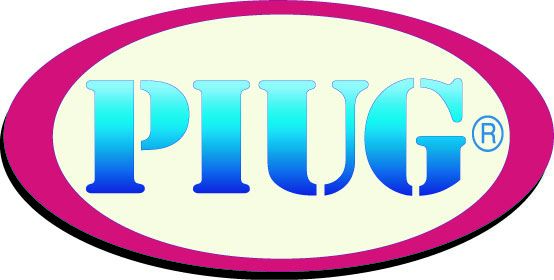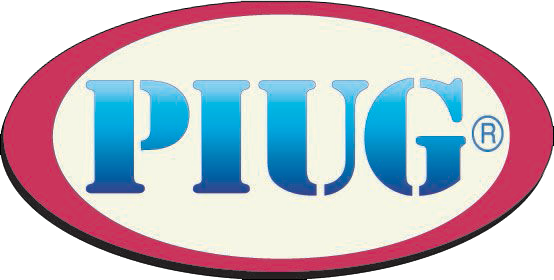ProgramTuesday, February 25, 2020
Meeting Abstracts
Abstract United States (U.S.) patent law has historically held that diagnostic-based inventions, along with purified and/or isolated natural products are eligible for patenting. Subject matter as diverse as medical diagnostics, diagnostic kits, vitamins, proteins, DNA and antibiotics have all been the focus of valid U.S. patents. But, in 2012 and 2013, the U.S. Supreme Court introduced uncertainty into the patent eligibility arena, by holding that genomic DNA was not eligible for patenting “merely because” it is isolated, and that a diagnostic-based invention was merely a natural law with nothing more. The U.S. Patent and Trademark Office and various U.S. federal courts have exacerbated this uncertainty with a series of official patent examination guidelines and decisions extending the Supreme Court’s limited holdings to diverse subject matter and inventions. In this lecture, we will explore the concept of what it means to be “patent eligible”, the history of patent eligibility in the natural products field, and the new legal doctrines and how they are negatively impacting U.S. patent eligibility. Biography Dr. Leslie Fischer, Ph.D., J.D. is a Principal Patent Attorney at Novartis Pharmaceuticals Corp. in East Hanover, NJ. She focuses on global patent prosecution, freedom to operate, regulatory exclusivity, licensing, contractual negotiations, and due diligences. Her technology area of expertise is biopharmaceutical products, particularly for the treatment of autoimmune diseases. Dr. Fischer is also Novartis Pharmaceutical’s designated liaison to the United States Patent Office (USPTO), a role created to enhance the relationship, facilitate dialogue, and share information between these entities. She also teaches mechanical patent claim drafting as an adjunct professor of law at Seton Hall Law School, in Newark, NJ. Prior to joining Novartis in 2007, Dr. Fischer was an associate attorney at Fitzpatrick, Cella, Harper and Scinto in New York, during which time she provided detailed opinion work for a broad range of clients, consulted on biotechnology litigation, and performed pharmaceutical and biotechnology patent prosecution. Dr. Fischer holds a J.D. from Rutgers University, and a Ph.D. in Biochemistry from Thomas Jefferson University in Philadelphia.
Abstract This presentation is concerned with the emergence of Chimeric Antigen Receptor (CAR) T-cell immunotherapy technology as shown by our studies (Nature Biotechnology, volume 37, pages 370–375, 2019) on the evolution of published patent applications. CAR T-cell therapy has captured the attention of the public because of the remarkable responses it has produced in some patients for whom all other treatments had stopped working. Our study shows the activity of inventors and applicants, the locations of inventive activity, the preferred territories of patent protection and some cooperation networks. Citation analysis reveals high-impact patents. Investment in manpower (inventor count) shows the commitment of patent applicants to their R&D investment in CAR T-cell therapy. Biography Nigel S. Clarke is Manager of the European Patent Office’s IP Knowledge research unit. His work includes patent landscaping and he has recently completed studies on CAR T-cell immunotherapy, blockchain, graphene composites, and quantum sensing and metrology, Current projects include space technology and hydrogen fuelled vehicles.
Abstract This talk will discuss search strategies that USPTO examiners use in evaluating the patentability of claims drawn to antibodies. The discussion will concentrate on claims to monoclonal antibodies claimed by sequence, but will also discuss how we evaluate claims drawn to antibodies which bind to an epitope. The talk will emphasize search strategies, but will also address inherency under 35 U.S.C. 102 and evaluation of compliance with the written description requirement of 35 U.S.C. 112. Biography Daniel Kolker received a bachelor’s degree in psychology from Vassar College in 1992. He worked as a technician in a small drug company in Cambridge MA for over two years, and then enrolled at Northwestern University’s Institute for Neuroscience. He received a Ph.D. in neuroscience in 2001, and served as a post-doctoral fellow at the National Institute of Child Health and Human Development. Upon joining the USPTO as an examiner in TC1600, he examined patent applications in the fields of neurobiology, receptors, and cytokines. In 2012, he became a supervisory patent examiner (SPE) and currently oversees art unit 1644, which examines applications in immunology. As a supervisor he works closely with junior examiners in the art unit, and is an expert on patent subject matter eligibility, particularly in the biotechnology area.
Abstract The use of multiple databases and search algorithms is essential to patent searchers exploring patentability and clearance searches for life science inventions. Concise keyword and fielded search techniques are essential for conducting a comprehensive sequence alignment exploration in the prior art. Biography Laura Bantle is a registered US patent attorney and is a member of the Minnesota Bar. Laura earned her B.S. from the College of Biological Sciences at the University of Minnesota, and graduated magna cum laude from William Mitchell College of Law. Prior to joining Clarivate Analytics, Laura gained corporate industry experience in pharmaceutical regulatory compliance and patent licensing.
Abstract CAS Biosequences are now available on two platforms - STN and GenomeQuest. Each platform has its relative strengths depending on the search and customer requirements. The presentation will describe typical searches, platform / content used, including example search strategies with BLAST, Motif and modified nucleotides. Biography Anne Marie Clark, Ph.D. is a Senior Searcher with the Science IP team. Her particular subject expertise is small molecules, sequences and formulations. She is skilled in patent searching, analysis and landscaping, as well as competitive benchmarking.
Abstract Trends in Biotechnology Innovation: An Analysis of Global Patent Filings Featuring Biosequences Biography Dr Caroline Peel is the Head of Content Operations for IP and Standards at Clarivate Analytics, leading the editorial curation of patent content for products including Derwent Global Patent Data Collection, Derwent World Patents Index and Derwent GENESEQ. Caroline has been part of the Clarivate team for 18 years. Caroline graduated from the University of Leicester with a BSc Hons Degree in Biological Sciences (Genetics) and a PhD in Cell Cycle Genetics from the University of Sheffield.
Abstract We have recently analyzed global patent filings related to CRISPR technology. We will present the results of this analysis including country-level activity and top patent fling organizations in the leading countries. Legal status and CPC data will shown. China is very active in the area of CRISPR, as we will show. Biography Qin consults with customers in the Asia Pacific region to provide global patent data solutions appropriate to their needs. Prior to joining IFI, she worked as a patent information searcher and information specialist, concentrating on the pharmaceutical and chemical industries. |
 Search
Search Community
Community Job Board
Job Board

